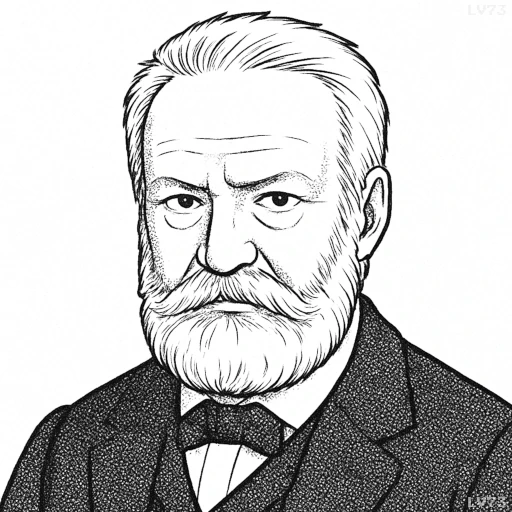“I’m religiously opposed to religion.”

- February 26, 1802 – May 22, 1885
- Born in France
- Author, poet, playwright
table of contents
Quote
“I’m religiously opposed to religion.”
Explanation
Victor Hugo’s quote presents a paradox in which he declares himself opposed to religion while also asserting a religious stance. This contradiction speaks to Hugo’s nuanced view of faith and institutionalized religion. He seems to be critiquing organized religion—perhaps specifically the dogma, hypocrisy, or control exercised by religious institutions—while still affirming a belief in spirituality or divine truth. Hugo may be suggesting that true faith does not necessarily align with formal religious structures, and that spiritual insight can exist outside the confines of organized religion. This critique reflects his belief that morality and humanity should not be defined solely by religious doctrines, but by personal integrity and compassion.
Hugo was deeply critical of the way religion was used to justify social inequalities and oppression. He was particularly vocal against the Catholic Church and its influence over French society, seeing it as a tool of control that often contradicted the values of kindness, justice, and freedom that he valued. At the same time, he maintained a belief in a higher power and the importance of moral guidance, but he felt that this should not be limited or defined by the structures of traditional religious institutions.
In modern terms, this quote can be seen as a critique of institutionalized religion and a call to examine spirituality outside of rigid frameworks. It encourages a more personal, direct connection to faith or morality, free from the constraints of organized systems. Hugo’s words remind us that spirituality and ethics can exist beyond religious labels, and that the essence of faith lies in compassion, justice, and humanity rather than in adherence to specific rituals or institutions.
Would you like to share your impressions or related stories about this quote in the comments section?




